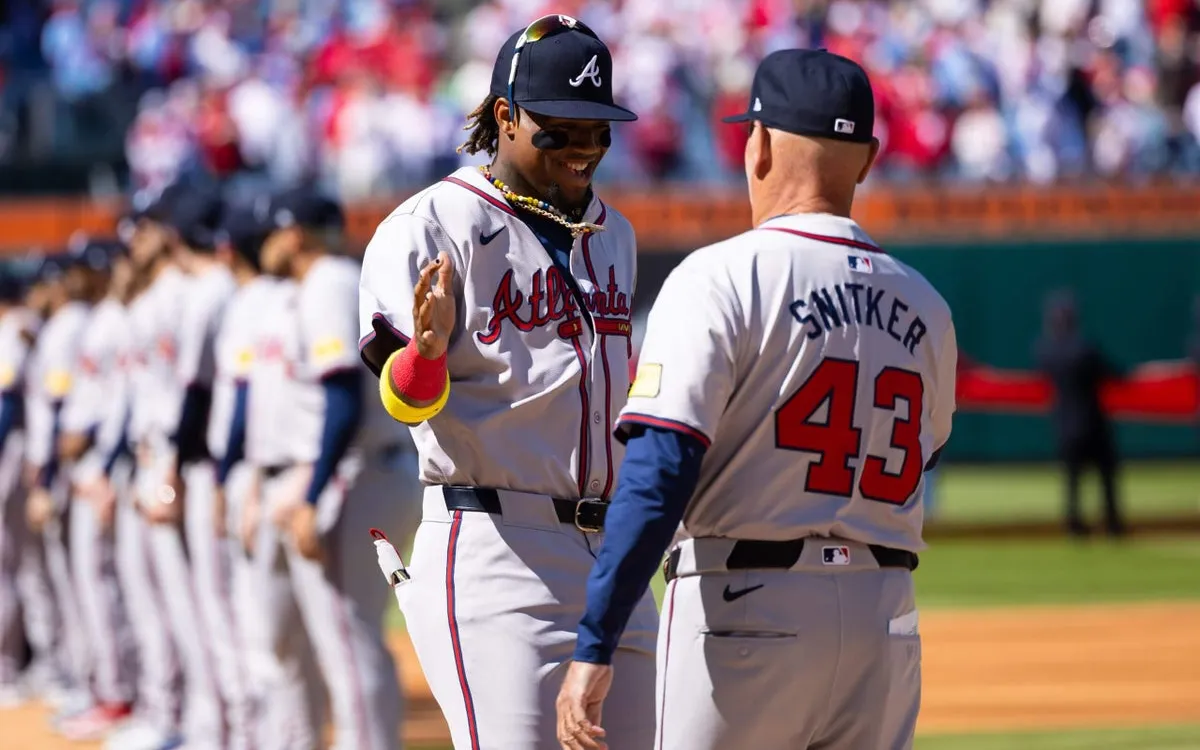
In the world of Major League Baseball, player discipline is a delicate issue, and recent events involving the Atlanta Braves highlight this complexity. Jarred Kelenic, a struggling player, failed to run hard on a fly ball that he assumed would be a home run. The reaction—or lack thereof—from manager Brian Snitker has sparked discussions about consistency and fairness in how players are treated.
Ronald Acuña Jr., who is currently sidelined while recovering from a torn left ACL, expressed his frustration publicly on X, stating, “If it were me, they would take me out of the game.” Acuña later deleted his post, but it raises significant questions about double standards in player treatment. Snitker, a respected manager with a long history in the Braves organization, has previously benched Acuña for similar infractions. In 2019, he removed Acuña from a game for not hustling on a fly ball, a decision that was met with both support and criticism.
Snitker's history with benching players for lack of hustle includes notable incidents involving Latin players like Ender Inciarte and Marcell Ozuna. Critics of Snitker's recent decision not to bench Kelenic—a White player—have questioned whether race played a role in his disciplinary choices. While Snitker has earned a reputation for being a fair and understanding leader, this incident could suggest a disconnect in how he enforces team standards.
Despite his accolades, including leading the Braves to six consecutive NL division titles and a World Series championship in 2021, Snitker's handling of this situation has raised eyebrows. His reputation for maintaining team harmony and addressing issues privately has come into question. In the past, Snitker has been known to defend his players robustly, as shown when he stood up for Acuña against the Miami Marlins in 2018.
One of the most critical aspects of effective management in baseball is consistency. Players thrive under clear expectations and fair treatment. Snitker’s failure to bench Kelenic, who is batting just .180 this season, has opened him up to criticism from players and fans alike. Acuña’s outburst, albeit impulsive, reflects a broader sentiment within the team regarding the need for consistent disciplinary measures.
The Braves are at a pivotal moment in their season, having recently swept the Minnesota Twins. Instead of focusing on this success, the conversation has shifted to Snitker’s decisions and whether he will retire after this season—his 49th with the Braves. While it’s unlikely the Braves will part ways with Snitker given his track record, the implications of this incident might linger.
As the Braves move forward, the need for introspection will be crucial. Snitker has acknowledged the existence of different circumstances surrounding each lack-of-hustle situation, but his inconsistent handling of Kelenic's case raises questions about his management approach. As Acuña prepares to rejoin the team, a dialogue between him and Snitker is expected. Ultimately, how this situation is resolved could significantly impact team dynamics as the Braves strive for success in the long haul of the MLB season.